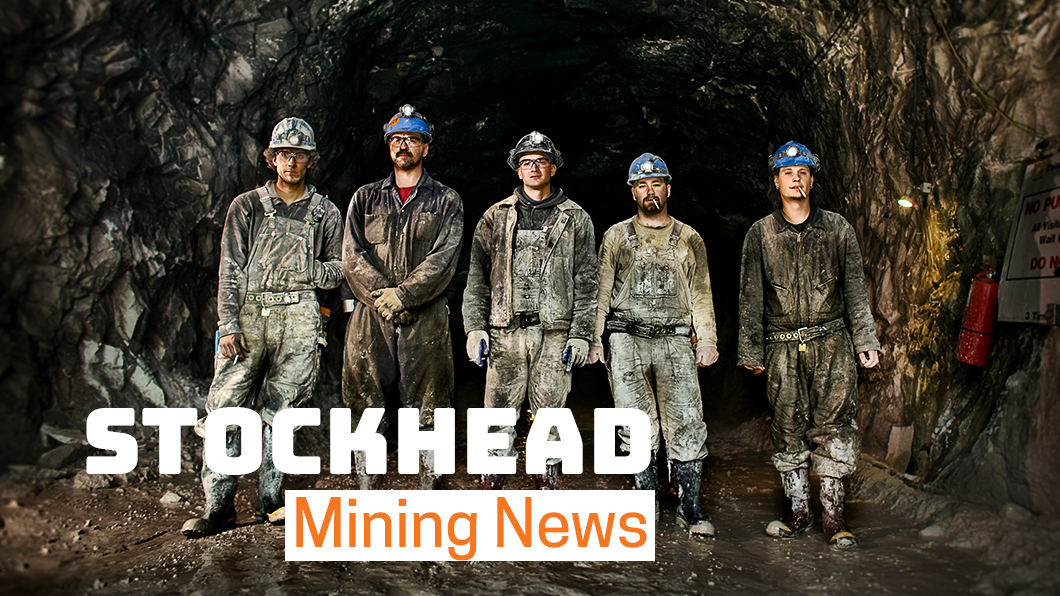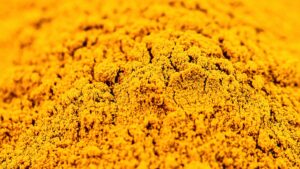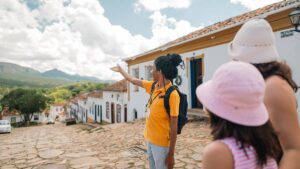Barry FitzGerald: Exore’s value building fast in a part of Africa that’s ‘like WA 50 years ago’

Pic: Tyler Stableford / Stone via Getty Images
The crowded Western Australian exploration scene has not been a happy hunting ground for ASX-listed junior explorers in recent years when it comes to making multi-million ounce gold discoveries.
But it has been a different story for ASX explorers with a focus on West Africa where the availability of highly prospective ground is much greater.
It should be no surprise then that West Africa seems to regularly produce multi-million ounce gold discoveries for ASX-listed juniors prepared to deal with the region’s security risks, and occasional sovereign risk challenges.
Cardinal Resources (ASX: CDV) is a case in point. Since the discovery hole five years ago, the mining reserve at its Namdini project in Ghana has grown to 5.1m oz.
The company now has a market value of $128m and is busily planning a mine development.
Today’s interest though is in ASX-listed Exore Resources (ASX: ERX) which is looking for West Africa’s next big one in the neighbouring and comparatively lightly explored Côte d'Ivoire.
The savvy types in local mining circles have had Exore on their watch lists since Justin Tremain became managing director in February last year.
He earned his stripes as the founder and boss of Renaissance Minerals which was taken over by ASX-listed Emerald Resources (ASX: EMR) for $40m in 2016 on the strength of its trail-blazing Okvau gold project in Cambodia.
Born from lithium
Tremain arrived at Exore when it was essentially a cashed-up shell known as Novo Litio, a name harking back to its days as a lithium explorer, initially in WA and later in Portugal.
While the lithium adventure had come to an end, asset sales had generated a pile of cash.
Tremain’s task was to find a new project. He settled on a deal to acquire an 80 per cent interest in a gold project in northern Côte d'Ivoire held by ASX-listed Apollo Consolidated (ASX: AOP) which retains 20 per cent and has its 100 per cent owned Lake Rebecca gold project in WA as its main focus.
Sporting $14m in lithium derived cash – unusual for an explorer of any description – the renamed Exore was able to hit the ground running in December last year and
results to date have impressed, with the company’s share price doubling to the current 8.9c for a total market value of $41m.
It has two drill rigs whirring away and expects to announce a maiden resource at its Antoinette Central prospect within its Bagoe project area later this year.
It is expected to be very much the start of a bigger story for Exore in Côte d'Ivoire.
Recent results from Exore’s maiden drilling program at Antoinette Central included 11m grading 11.59g/t gold from 89m, 8m at 10.33g/t from 105m and 15m at 9.96g/t from 80m.
- Subscribe to our daily newsletter
- Join our small cap Facebook group
- Follow us on Facebook or Twitter
The results prompted Tremain to comment that the prospect is “shaping up to be a very exciting, high-grade gold discovery”.
Exore has since followed up the Antoinette Central results with another discovery to the south called Veronique. Shallow intersections included 12m at 3.63g/t from 4m and 8m grading 2.71g/t from the surface.
The results are from a small section of the large Veronique anomaly.
‘Like WA 50 years ago’
In all, Exore is drilling its Côte d'Ivoire ground at a non-stop rate of 10,000m a month, as it can, thanks to the $14m cash-on-hand. “It’s drilling that leads to discoveries,” Tremain told Garimpeiro.
He said that the thinking behind making the push in to Côte d'Ivoire came down to opportunity.
“A project like this just isn’t available in Australia anymore. Côte d'Ivoire is probably like WA was 50 years ago,” Tremain said.
He added that the prospective rocks that host much of West Africa’s gold riches are lightly explored in Côte d'Ivoire, even though the rocks are more extensive than in neighbouring countries like Ghana and Mali where seriously big discoveries have been made.
UNLOCK INSIGHTS
Discover the untold stories of emerging ASX stocks.
Daily news and expert analysis, it's free to subscribe.
By proceeding, you confirm you understand that we handle personal information in accordance with our Privacy Policy.








